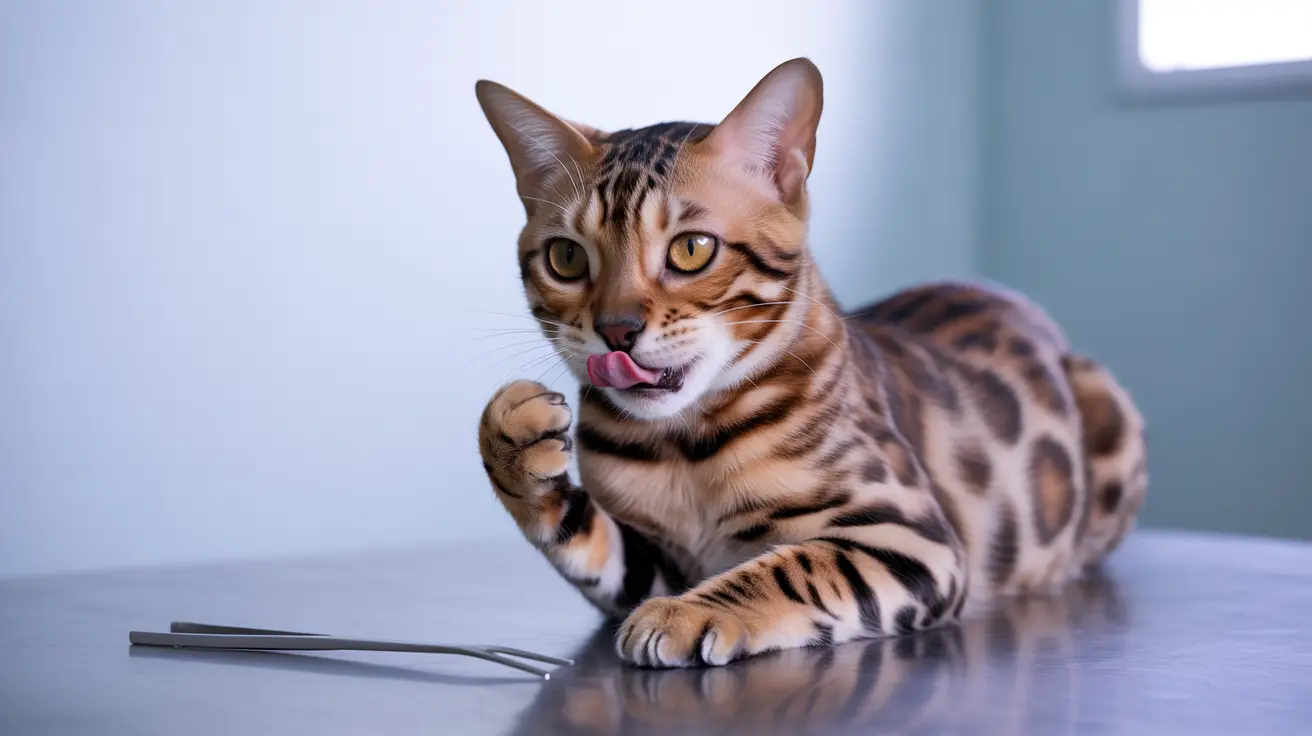If you've noticed your cat making unusual grinding sounds with their teeth, you're likely wondering "why is my cat grinding his teeth?" This concerning behavior, known as bruxism, isn't normal in cats and typically signals an underlying health issue that requires attention. Understanding why cats grind their teeth and knowing when to seek veterinary care is crucial for your pet's wellbeing.
In this comprehensive guide, we'll explore the various causes of teeth grinding in cats, from dental disease to systemic health issues, and discuss the steps you need to take to help your feline friend.
Common Causes of Feline Teeth Grinding
Dental Disease and Oral Pain
The most common reason cats grind their teeth is dental disease. An estimated 75% of cats over age five develop tooth resorption, a painful condition where the tooth structure breaks down. Other dental issues including periodontal disease, broken teeth, and severe gingivitis can all trigger grinding behavior as your cat attempts to cope with the discomfort.
Medical Conditions
Beyond dental problems, various health conditions can cause teeth grinding in cats:
- Gastrointestinal issues like pancreatitis or inflammatory bowel disease
- Throat or esophageal pain
- Joint problems such as arthritis
- Neurological disorders
- Cancer
Signs Your Cat Is Experiencing Dental Pain
Watch for these additional symptoms that often accompany teeth grinding:
- Difficulty eating or dropping food
- Excessive drooling
- Bad breath
- Pawing at the mouth
- Visible swelling or inflammation
- Changes in behavior or appetite
Diagnosis and Treatment Options
Veterinary Examination
Your veterinarian will likely perform:
- A thorough oral examination
- Dental X-rays to check for hidden problems
- Blood tests to rule out systemic illness
- Additional imaging if necessary
Treatment Approaches
Treatment varies depending on the underlying cause but may include:
- Professional dental cleaning
- Tooth extraction if necessary
- Pain medication
- Antibiotics for infection
- Dietary modifications
- Treatment for any underlying medical conditions
Prevention and Home Care
To help prevent dental issues that lead to teeth grinding:
- Schedule regular dental check-ups
- Brush your cat's teeth regularly if possible
- Use veterinary-approved dental treats and products
- Feed dental-friendly diets
- Monitor your cat's oral health at home
Frequently Asked Questions
Why is my cat grinding his teeth and what common dental problems cause this behavior?
Cats primarily grind their teeth due to dental problems like tooth resorption, periodontal disease, or broken teeth. This behavior is almost always a response to pain or discomfort in the mouth.
How can I tell if my cat's teeth grinding is due to pain or stress?
Pain-related grinding usually accompanies other symptoms like difficulty eating, drooling, or pawing at the mouth. Stress-related grinding is less common and typically occurs alongside other anxiety behaviors like excessive grooming or hiding.
What symptoms should I watch for if my cat is grinding his teeth?
Look for changes in eating habits, drooling, bad breath, facial swelling, pawing at the mouth, and behavioral changes. Any of these symptoms alongside teeth grinding warrants veterinary attention.
When should I take my cat to the vet for teeth grinding, and what diagnostic tests might be needed?
Take your cat to the vet as soon as you notice teeth grinding, as it's never normal behavior. Your vet may perform dental X-rays, blood tests, and a thorough oral examination to determine the cause.
How can dental disease and other health issues be treated to stop my cat's teeth grinding?
Treatment depends on the underlying cause but may include dental cleaning, tooth extraction, pain medication, antibiotics, or treatment for systemic conditions. Your vet will create a specific treatment plan based on the diagnosis.
Conclusion
If you're wondering "why is my cat grinding his teeth," remember that this behavior always requires veterinary attention. Don't wait to seek help, as early intervention can prevent more serious complications and ensure your cat's comfort and health. Regular dental care and preventive measures can help avoid many of the common causes of teeth grinding in cats.






